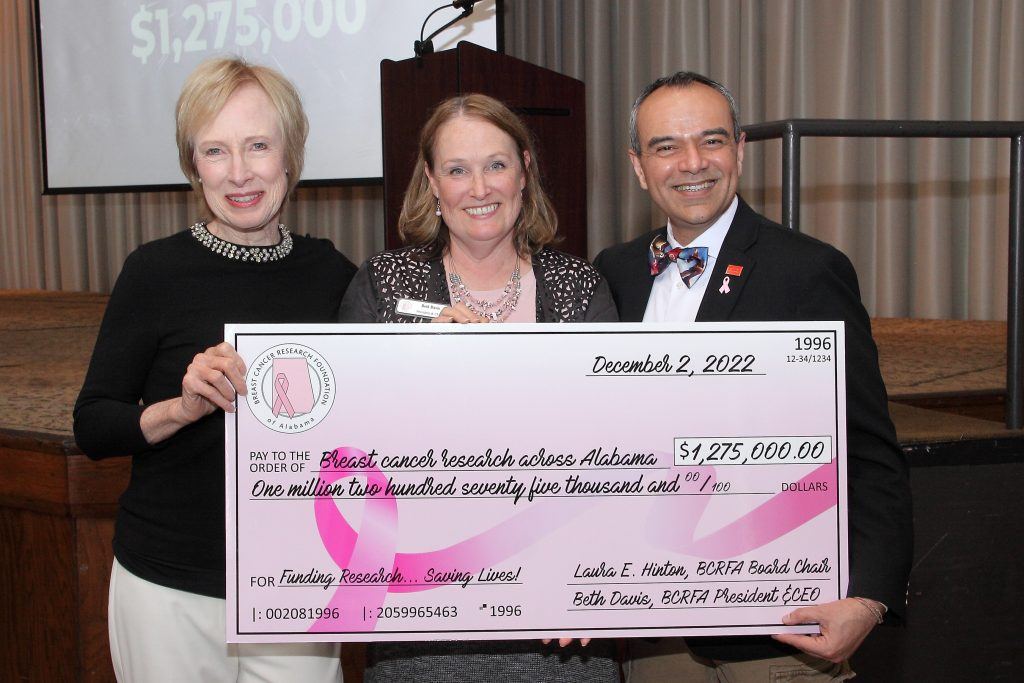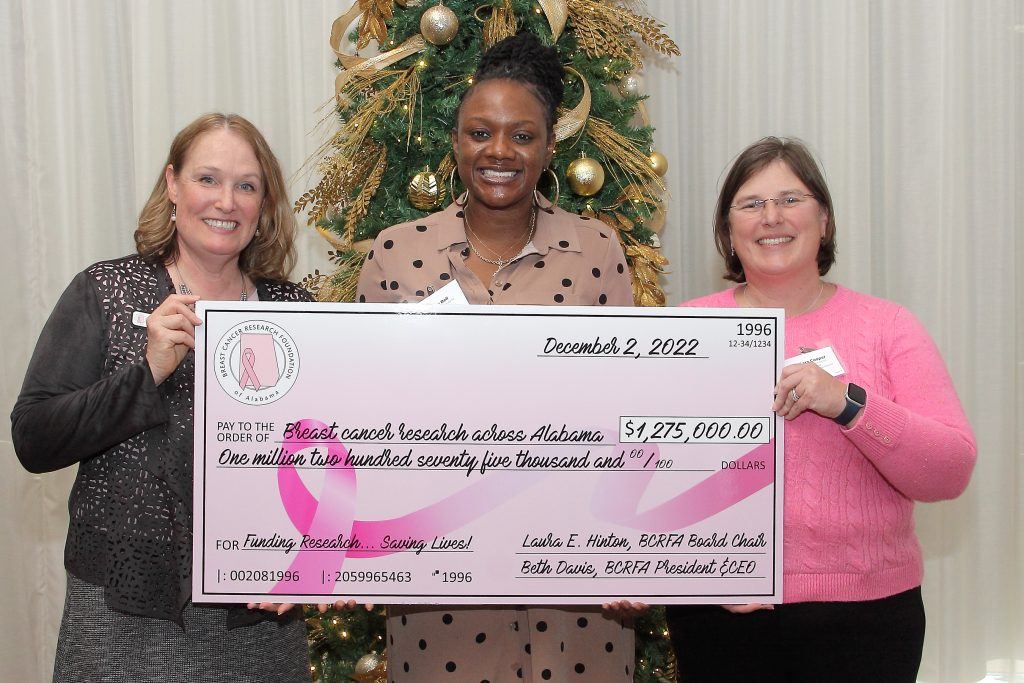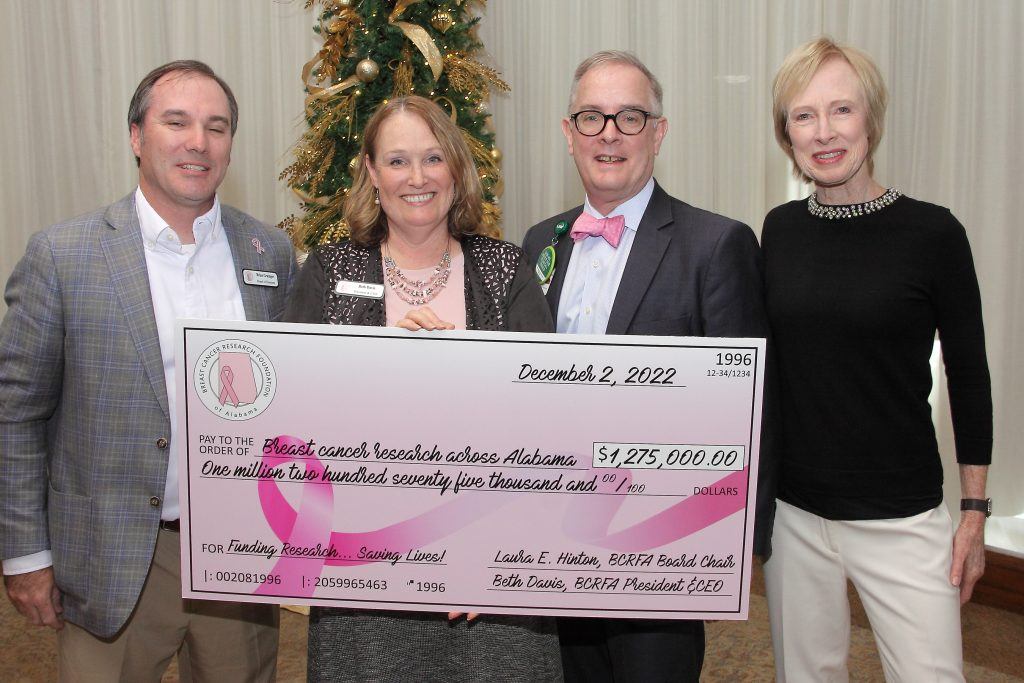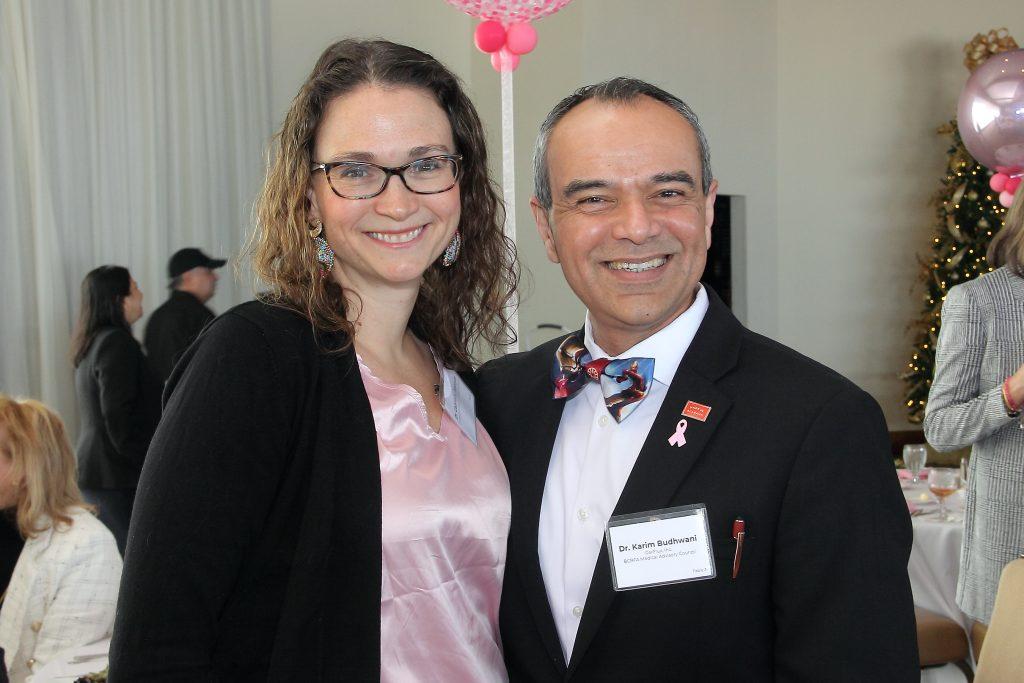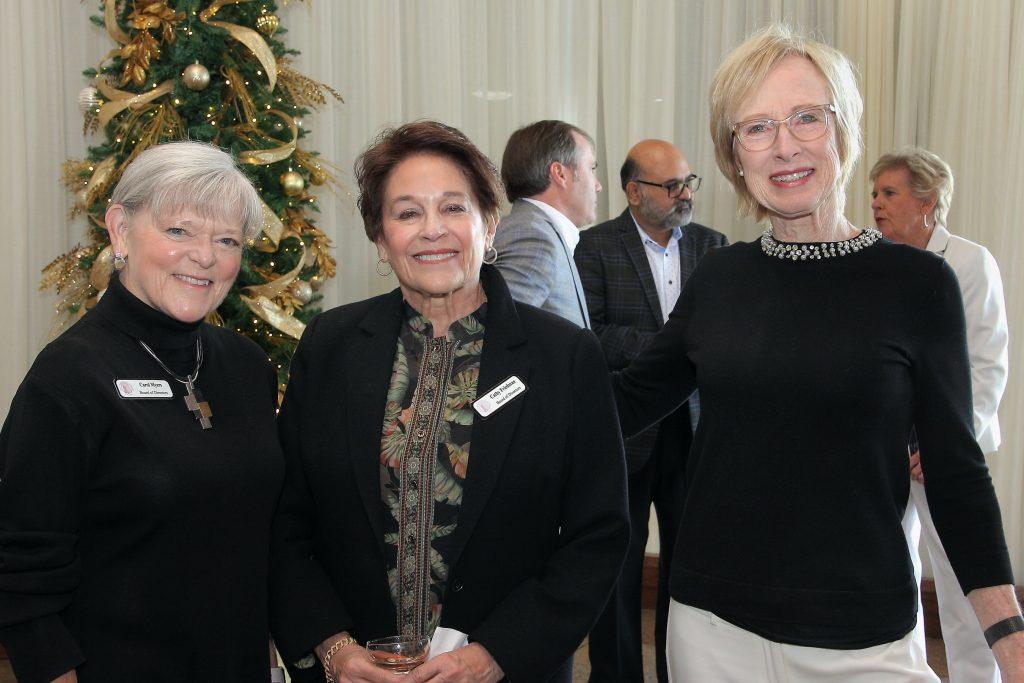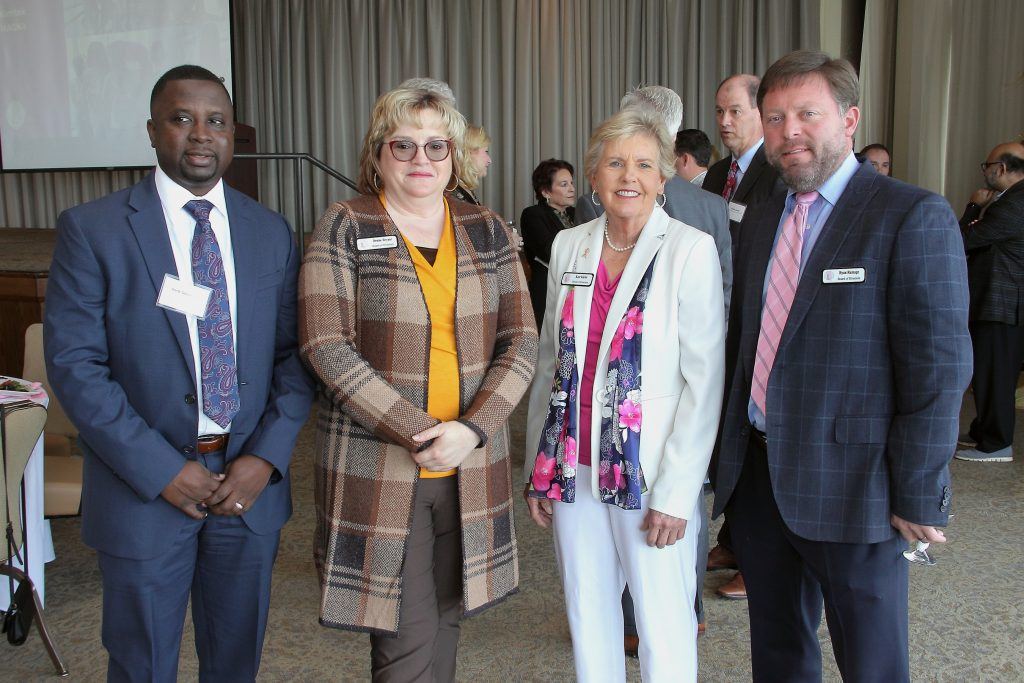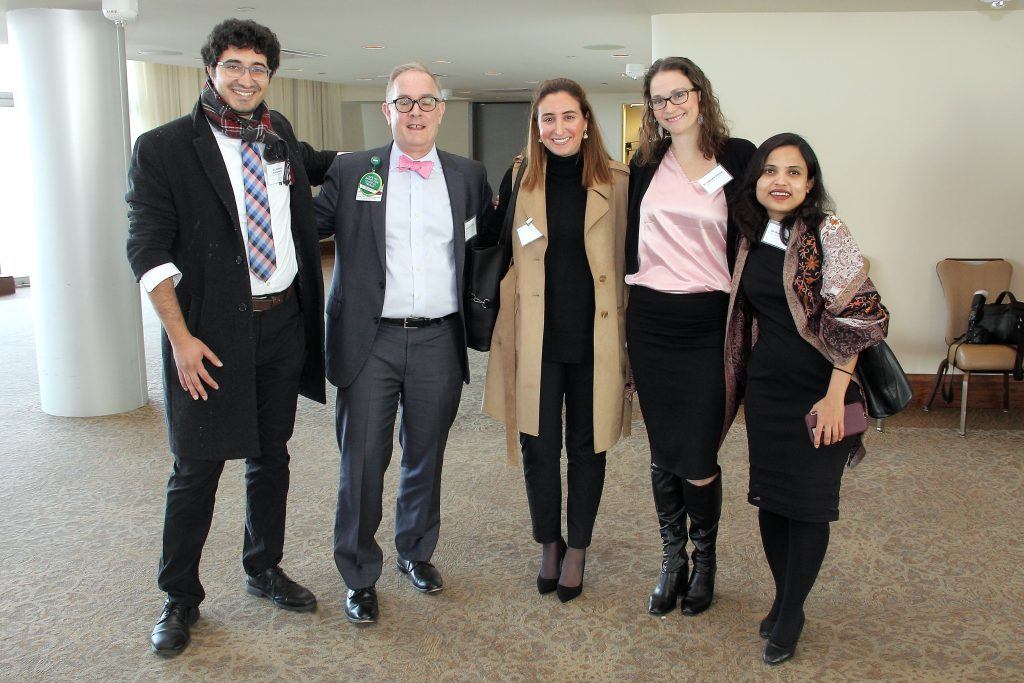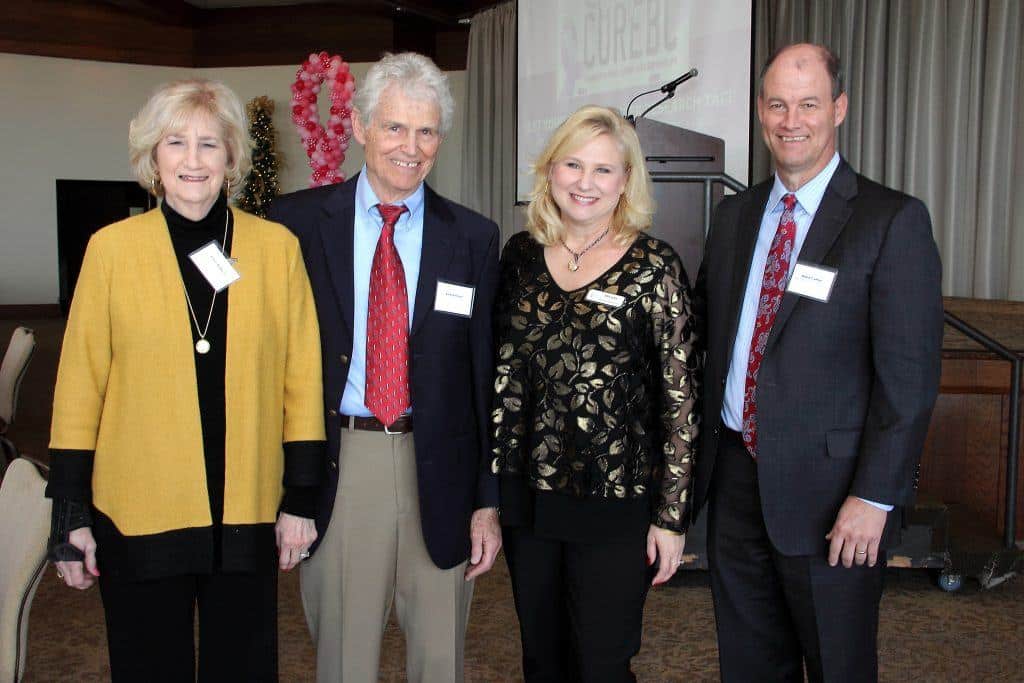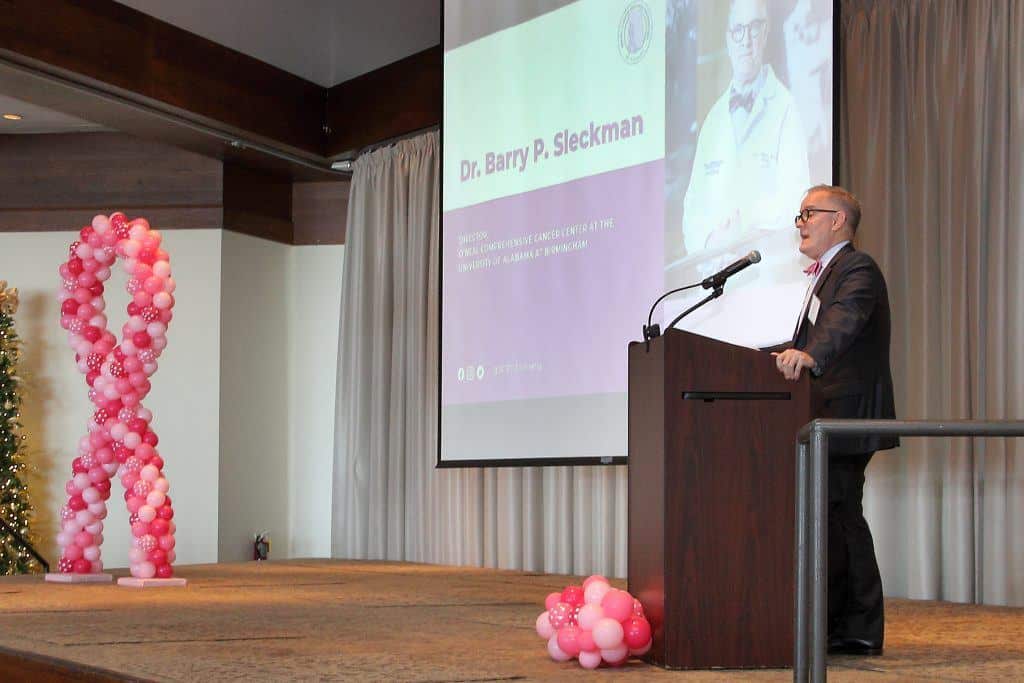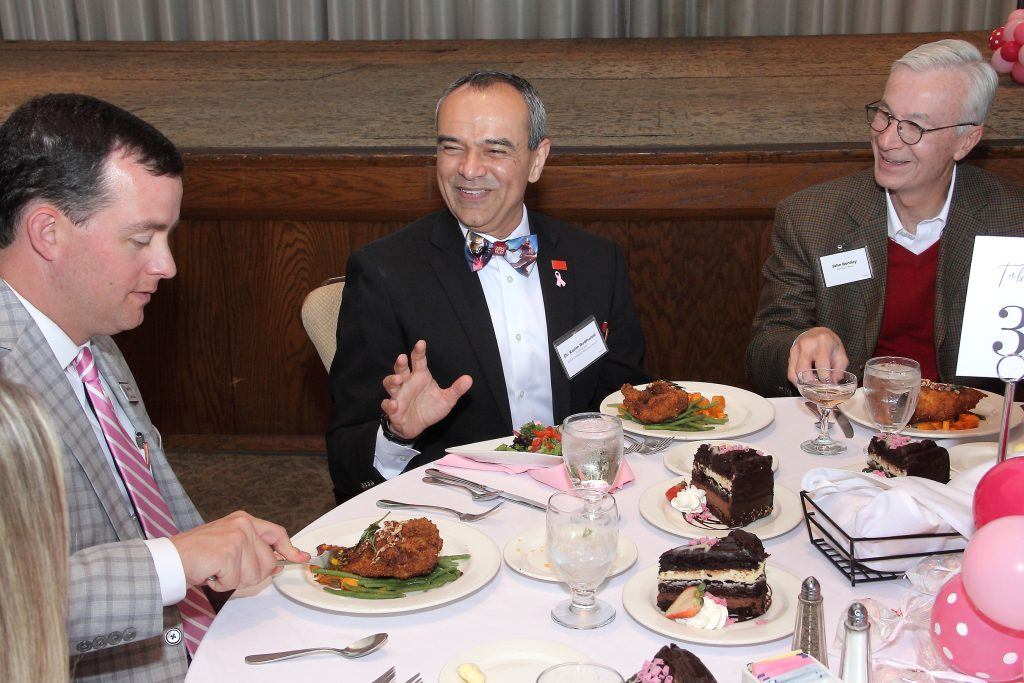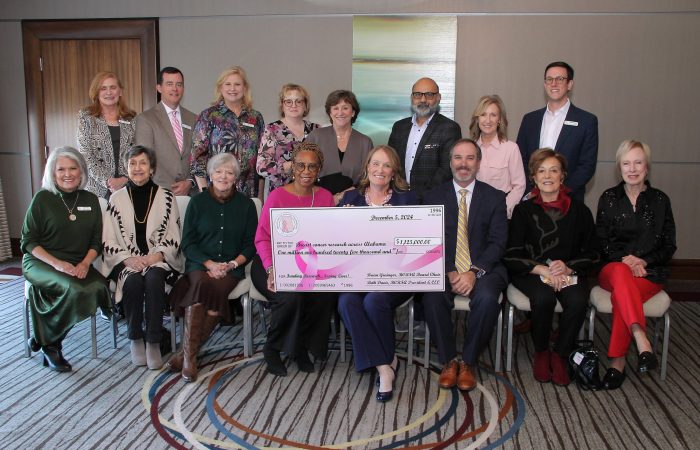The Breast Cancer Research Foundation of Alabama (BCRFA) seeks to accelerate breast cancer research in…
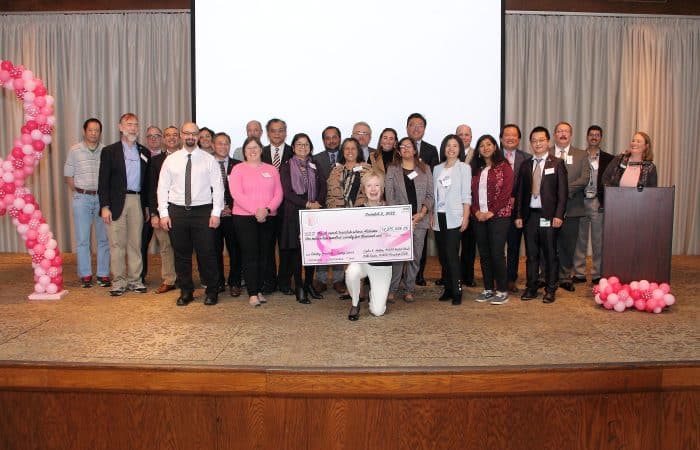
BCRFA announces $1.275 million investment in Alabama-based breast cancer research
The record-level funding will support 24 early-stage projects across the state
The Breast Cancer Research Foundation of Alabama (BCRFA) today announced a total investment of $1,275,000 in Alabama-based breast cancer research in 2022. Grants fund 24 research projects at seven institutions across the state, including the O’Neal Comprehensive Cancer Center at the University of Alabama at Birmingham (UAB), Auburn University, CerFlux, the Mitchell Cancer Institute at the University of South Alabama, Tuskegee University, the University of Alabama, and HudsonAlpha Institute for Biotechnology. This year’s grant awards increase the BCRFA’s lifetime investment total to nearly $14 million since 1996.
“With this year’s historic investment in research, the BCRFA is proud to continue our legacy of driving breast cancer breakthroughs across Alabama,” said Beth Davis, BCRFA President & CEO. “From advances in early detection to treatment options, BCRFA-funded research is giving hope to the countless individuals touched by breast cancer—and ultimately saving lives.”
BCRFA dollars function as seed funding for early-stage studies, allowing researchers to generate the additional data needed to attract major national funding. Many BCRFA-funded projects have later received multimillion dollar national grants from the National Institute of Health and others.
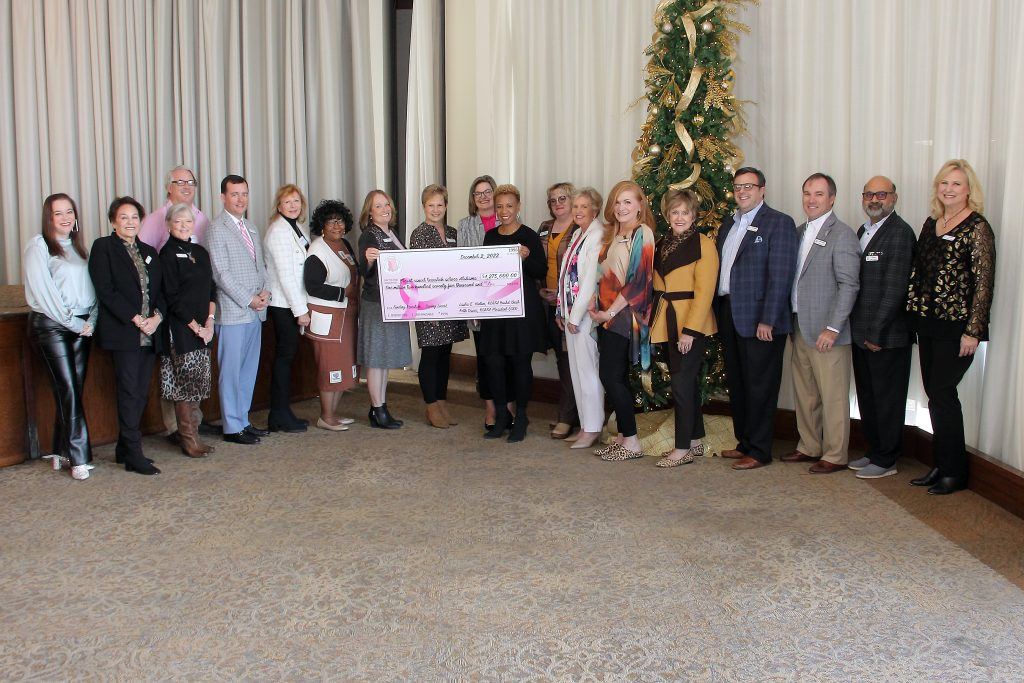
“The Breast Cancer Research Foundation of Alabama has made remarkable investments in cancer research in our state, in particular by funding investigators and projects with significant potential to improve cancer outcomes,” said Barry P. Sleckman, M.D., Ph.D., director of the O’Neal Comprehensive Cancer Center at UAB. “The BCRFA has been an incredible partner, and we are grateful for their support.”
The 2022 grantees include:
Auburn University (Auburn, AL)
- Dr. Alexei F. Kisselev: Highly Active Liposomal Formulation of Proteasome Inhibitor Carfilzomib for the Treatment of TNBC
- Drs. Robert D. Arnold (Auburn University) and Yuping Bao (University of Alabama): Carrier-Free Quercetin Nanoparticles for Overcoming Breast Cancer Drug Resistance
CerFlux (Birmingham, AL)
- Drs. Karim Budhwani and Chelsea Crawford: Getting the Right Treatment to the Right Patient by Matching Regimens to Patient Biopsy Before Treatment
HudsonAlpha Institute for Biotechnology (Huntsville, AL)
- Dr. Sara Cooper: Inherited Breast Cancer Risk Screening and Education – Historically Black Colleges and Universities Expansion
Tuskegee University (Tuskegee, AL)
- Dr. Deepa Bedi: Cancer Genomic Study to Characterize Genetic and Epigenetic Diversity of Immune Landscape in Triple Negative Breast Cancer in Women of African Ethnicity
University of Alabama at Birmingham (Birmingham, AL)
- Dr. Rita Aneja: Evaluating Associations of Rurality and Neighborhood Disadvantage with Racial Disparities in Breast Cancer Mortality Among Women in the State of Alabama
- Dr. Smita Bhatia: Predicting the Risk of Heart Failure in Breast Cancer Survivors
- Drs. James Bibb and Tika Benveniste: Cellular and Molecular Basis of the Neurological Effects of Chemotherapy
- Dr. Anindya Dutta: FAM129B/NIBAN2 as a Biomarker for Therapy with NRF2 Inhibitors
- Dr. Blake Eason Hildreth, III: Targeting CSF1R/PU.1 Signaling and PU.1 Superenhancer Regulation in Tumor Progression Across Breast Cancer Subtypes
- Dr. Katia Khoury: Phase II Single Arm Trial of Low Dose Capecitabine in Patients with Advanced Breast Cancer
- Dr. Jianmei Leavenworth: Hijacking Axonogenesis to Promote Breast Cancer by a Subset of Regulatory T Cells
- Dr. Catherine Parker: Research Support for Breast Surgical Fellowship
- Dr. Amr Rafat: Elucidating the Effects of Hypoxia on Ribosome Biogenesis in Breast Cancer
- Drs. Bin Ren and Lizhong Wang: Unique Arteriolar Niche in Expansion of Breast Cancer Stem Cells for Metastasis
- Dr. Rajeev Samant: Identification of HIF-1a Interactors in the Nucleolus of Breast Cancer Cells
- Dr. Lalita Shevde: A Novel Clinically Actionable Approach to Disable Resurgence and Metastasis of Triple-Negative Breast Cancer
- Dr. Keshav Singh: Intercellular Mitochondrial Trafficking as a Novel Mechanism in Breast Cancer Progression and Metastasis
- Dr. Jia Xu: Developing Novel AKT Degrader to Selectively Inhibit the Growth of PI3K/AKT/PTEN Pathway Mutant Breast Cancer
- Drs. Eddy Yang and Zhuo Zhang: RNF2 Ablation Stimulates Durable NK-CD4+ T Cell-Dependent Anti-Tumor Immunity
- Dr. Chao Zhang: Chronic Stress-Regulated Tumor-Neuroimmune Network in Triple-Negative Breast Cancer
University of Alabama (Tuscaloosa, AL) – in partnership with Auburn University
- Drs. Yuping Bao (University of Alabama) and Robert D. Arnold (Auburn University): Carrier-free Quercetin Nanoparticles for Overcoming Breast Cancer Drug Resistance
University of South Alabama Mitchell Cancer Institute (Mobile, AL)
- Dr. Debanjan Chakroborty: WNK1, A Novel Regulator of Metastatic Breast Cancer
- Dr. Luis del Pozo-Yauner: Contribution of PERK+ Polyploid Giant Cancer Cells in the Ethnic Disparity of Triple Negative Breast Cancer
- Dr. Seema Singh: Influence of Stress on Immune Landscape and Spatial Heterogeneity of Breast Cancer
BCRFA funding is made possible with support from corporate and community partners; local, state, and federal funders; event patrons; generous individual donors; and sales of the Breast Cancer Research specialty license plate. Available at DMVs across the state, nearly 14,000 vehicles in Alabama sport the Breast Cancer Research tag. One hundred percent of tag sale proceeds received by the BCRFA support local, lifesaving research.
About the Breast Cancer Research Foundation of Alabama
Founded in 1996, the Breast Cancer Research Foundation of Alabama (BCRFA) is a nonprofit organization whose mission is to find a cure for breast cancer by funding promising breast cancer research in Alabama and raising community awareness and funding for that research. BCRFA funds promote a comprehensive approach to battling breast cancer by fueling collaborative and innovative research to help diagnose, treat, prevent, and eradicate the disease. Thanks to generous community support, BCRFA’s lifetime investment in life-saving research totals nearly $14 million. All funding stays in Alabama, but the impact is worldwide. Learn more about our mission and breakthroughs at www.bcrfa.org.

